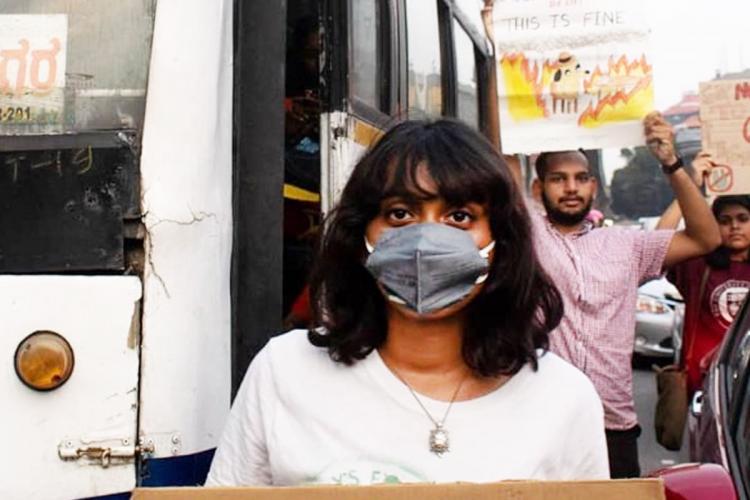The vitriolic criticism by some social media users, directed against additional sessions judge of a Delhi court Dharmender Rana, has surprised many. Judge Rana made certain pronouncements on the Disha Ravi toolkit case wherein he upheld the values of freedom of speech and granted her bail. The strong negative reaction against the judgement reveals the vicious form of intolerance that is getting free play when anything considered unfavorable to the central government takes place. Union Law Minister Ravi Shankar Prasad was rather too economical with his words when he, instead of condemning outright the sinister move to cow down even the judiciary, merely said February 27 a “disturbing trend” of activists criticizing judges for unfavourable verdicts had started.
It is well known that criticism of judgements in good faith is not only permissible but also healthy for democracy. But under no circumstances individual judges should be made targets of criticism. This is an axiom followed traditionally in all free societies. Quite correctly legal experts have demanded stringent punitive action be taken against the culprits who have criticised judge Rana.
The judge, in his order, made a series of laudable observations to buttress his ruling exonerating Disha of the draconian charge of sedition. One of these was: “The offence of sedition cannot be invoked to minister to the wounded vanity of the governments.” These were actually not his words. He was quoting the ruling of a British judge in favour of an Indian citizen against the colonial government of pre-independence India.
Everyone knows that the social media activists, who tried to vilify the judge, were not ignorant of the context nor of the author of the words. They were doing their paid job of brow beating anyone and anything that seems uncomfortable to the powers that be.
The reason for the intolerance of these apparent pro-government activists is not difficult to gauge. For some time the government has been getting judgements from most of the courts – be it the apex or subordinate courts – which have not only been extremely favourable to it, but also greatly helpful in legally sanctifying its political-social agendas. This has set such a trend that many politicians in power have boasted in public domain that the judiciary is favourable. Those boasts seem to hold water as many judgements do, indeed, seem very lopsided and grossly crossing the barriers to help the government. This triumphalism was witnessed when these leaders predicted, well before the verdict could be pronounced, that the Ayodhya Ram Janmabhoomi case would go in favour of the advocates of the construction of Ram temple at the disputed site.
Viewed in this backdrop, judge Dharmender Rana seems to have not only showed extraordinary uprightness, but also exemplary courage in upholding the rule of law without fear or favour. This happened at a time when the citizens of the country are getting disillusioned with the judiciary. One of the most disturbing development was when the last Chief Justice of India, Ranjan Gogoi, was nominated as a Rajya Sabha member by the ruling BJP soon after he retired after passing several controversial judgements that visibly assisted one particular political idea.
Judge Rana’s ruling might have helped restore the people’s faith in the judiciary somewhat when he ordered the release of Disha Ravi on bail with the stinging observation that the Delhi police investigation was “scanty and sketchy.” At the same time he defended the right of citizens to disagree with the government and underlined that any claim, even if false, exaggerated or even with the mischievous intent, “cannot be stigmatised being seditious unless they have a tendency to foment violence.”
His memorable words were “citizens are conscience keepers of government in any democratic nation and they cannot be put behind bars because they choose to disagree with the State policies.”
The Delhi Police had sought to link the violence in Delhi on 26 January 2021 Republic Day during the tractor rally to the toolkit case implicating Disha Ravi. The judge said there was no evidence to back the charge that there was any link between the two or that Disha had subscribed to any secessionist idea. He also found there was nothing wrong for Disha sending the Google document to Greta Thunberg. Freedom of speech and expression includes the right to seek a global audience and there are no geographical barriers on communication.
Obviously, supporters of the government found these pearls of wisdom from the judge to be unpalatable. For them, those words exposed the government’s sinister attempts to go for witch-hunting against those who lent support to the farmers’ agitation. The Delhi police, which is under the Union government, proceeded in the Disha Ravi case with a convicting mind without a shred of evidence as the government seemed desperate to silence attempts to get international support to the farmers’ cause. However, whether by intent of the government or accident, this Disha Ravi matter did succeed in diverting the nation’s attention away from the farmers’ struggle to some extent.
The government could now wipe out this blemish by acting not only against the malevolent social media users but also if it would punish the involved Delhi Police officials for their dereliction of duty. It ought to act with the same alacrity it had demonstrated in arresting Disha or the manner in which it has issued a huge list of fresh new regulations to rein in social media, news websites and other internet based platforms that are refusing to toe the official line.
